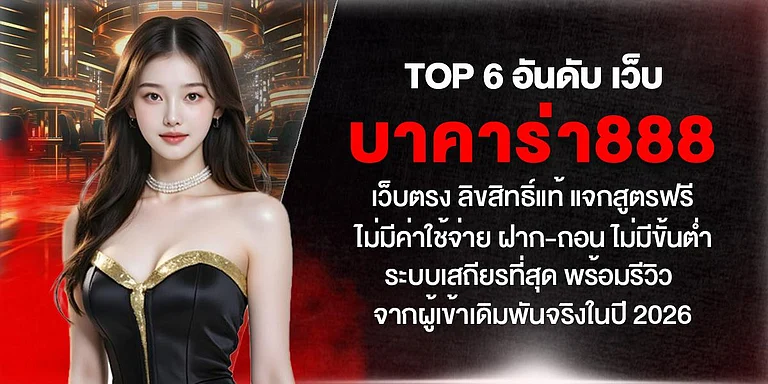YOU could have almost heard the bugle and a call to arms in The Daily Telegraph editorial on what is, after all, only a film on England's Queen Elizabeth I. "It should rouse England to chivalrous anger," the paper wrote. "To question Elizabeth's virtue 400 years after her death is not just a blackguardly slur upon a good, Christian woman, but an insult to our fathers who fought for her." The attack was on Shekhar Kapur, who has turned his skills as director from a film on the Bandit Queen to England's former Queen. The Telegraph reacted after Kapur informed the paper that Queen Elizabeth, who ruled from 1558 to 1603, "was definitely not a virgin". In the film, he said, "I show her having a strong physical relationship with her lover, Robert Dudley, the Earl of Leicester." Audiences, Kapur promised, "will be left in no doubt that she was not a virgin." With the rape scenes from Bandit Queen in mind, the true-blue of England fear the worst about how exactly Shekhar Kapur plans to remove "all doubt".
The editorial in The Telegraph titled Elizabeth Intacta sparked off what is beginning to look like a national defence of the virginity of Elizabeth I. "The obsession with sullying the reputations of dead heroes and heroines is one of the ugliest features of our age," the paper wrote. Writers across England have risen to defend their earlier Elizabeth, and what they believe to be the historical truth. Academics have entered the public debate. Amanda Foreman, a historian at the University of Oxford, says Elizabeth never spent a moment alone from the day she became Queen, so she could not be other than virgin. "Sleeping, dressing, washing, defecating all took place in the presence or the very near presence of servants," she wrote in The Express . "No one could approach or leave the Queen without passing an army of attendants. If Elizabeth ever had sexual relations with Dudley, 30 people would have known about it instantly." Elizabeth I's virginity is "the one thing on which every Tudor historian can agree," she said, and a film that shows otherwise is "ego-driven fiction parading as truth".
The new controversy has arisen in a country more than a little fatigued by royal scandals. It is unlikely that it will take kindly to this one: that 400 years back the other Elizabeth actually did it with the Earl of Leicester. Four centuries down the line, this is still more of a dispute about royalty than a debate over cinema. British royalty has taken a knocking in the past year as never before. Now, enter a Punjabi with the revelation that England's Virgin Queen was not virginal after all.
Unease has been added to insult in that the new film on the sexual ways of the 16th century Queen is directed by a foreigner, Shekhar Kapur, with Australian actress Cate Blanchett cast as Elizabeth. A film on our now electorally-deposed Bandit Queen was all right for Shekhar Kapur to do, but on England's Queen? And an Australian playing the 16th century Elizabeth when Australia is preparing to rid itself of the present Elizabeth?
In the flak that has begun to pop up all around this new film, the British papers have not in so many words objected to this foreign takeover of their Queen's story; but these are matters where England has over the years become quite good at saying something without speaking it. The blue banner questions in
The Express with the politics of racial conservatism they suggest, the indignation over the "insult to our fathers", speak of an Anglo-Saxon anger that goes beyond academic disagreement or a purely critic's view of a film's contents. Art does not seem to cross these divides with the freedom with which theoretically it should. But this deflowered version of Elizabeth has succeeded in getting talked about.
Whether Elizabeth I did or didn't 400 years ago is not about to be sorted out now.
The Telegraph can insist that the most she ever did was to engage in "flirting" in "national interest". But, then again, a film of the She-Did school is more likely to inspire interest than one of those stodgy period dramas the BBC is so fond of. There's money in shock value. The newspaper columns of protest are hardly likely to keep audiences away, and chivalrous anger is not likely to take the shape of vacant halls.
The production of the portrayal of a sexually active Virgin Queen is being pushed by big names. Dudley, the Earl of Leicester with whom "she did it" in this film, is played by Joseph Fiennes who starred in Bernardo Bertolucci's Sleeping Beauty . Sir Richard Attenboro-ugh plays the role of Sir William Cecil. Less expectedly, the celebrated French footballer Eric Cantona marks his kick-off into cinema with the role of the French ambassador. The Queen's confidante, Sir Francis Wal-singham, is played by Geoffrey Rush, winner of the 1997 Academy Award for his role of the pianist David Helfgott in Shine . Kathy Burke, 1997 winner of the Best Actress Award at Cannes, plays Queen Mary. The screenplay has been written by Michael Hirst ( House of Spirits , Meeting Venus ) and the film comes from Working Title, the company that made Four Weddings and a Funeral .
HISTORICAL disputes have crept into the editing tables at the studios of Polygram Films in London. Particularly as Kapur's definitive pronouncements about the lack of virginity of the Virgin Queen have preset public focus on what the film will show. A manager at Working Title indicated to Outlook that production managers are unhappy about Kapur's "mistimed" remarks and that there is "a point beyond which bad publicity might not be good publicity". Nonetheless, with this kind of publicity the film can more than make up in America what, if anything, it loses in England.
At a making cost of £20 million, Elizabeth is what in Mumbai terms would be called a blockbuster. The filming has been done at every palace and castle worth the name—other than Buckingham Palace and Windsor Castle, homes to the present Queen. The medieval and Tudor Haddon Hall in Derbyshire forms the backdrop to scenes when the young Elizabeth receives news that she is Queen of England. Many of the major scenes were filmed at castles in Northumberland and the north of England such as Alnwick Castle in Northumberland where the arrest of the young Elizabeth and the burning of martyrs is filmed. The torture chambers of the Tower of London were filmed at the 12th century Warkworth Castle. The coronation was filmed at the historical York Minster.
Working Title does not claim this to be a historical film but rather, a 'romantic drama'. But it isn't admitting any historical inaccuracies either. The story begins in 1554 with England shown as devastated under the rule of Mary. Elizabeth ascends the throne, the country rejoices, and as it does, Elizabeth seeks out Dudley. This launches the 'romantic drama' with that doubted sex element thrown in.
Historians do not deny the love between Elizabeth I and Dudley. But they have generally taken a pretty firm stand against an admission of actual intercourse. And so, a potentially great story about an undoubtedly great Queen has turned into a public dispute over her virginity, or as The Telegraph puts it in true 16th century style, her virtue.


























